How to Budget Your First Paycheck
Getting your first paycheck is exciting, but let’s be real, it can also feel a little overwhelming. How much should you save? What about bills? Can you still have some fun money without blowing your future? If you’re wondering how to budget your first paycheck, you’re definitely not alone.
I still remember getting my first paycheck during my college internship. I was so excited. It felt like I finally had the freedom to spend on whatever I wanted without worrying. (I was dreaming about saving for my first car, anything to stop relying on those endless bus rides that took hours and three transfers just to get to my internship!)
But when that paycheck hit, I quickly realized something:
➔ The dollar-per-hour rate I agreed to?
➔ Not exactly what landed in my bank account after taxes.
And even though I was working hard, I couldn’t just pick up extra shifts to boost my pay. My internship had strict limits on the hours I could work. On top of that, my parents started having me pay for my own housing during college. A reality check that made my shiny new paycheck disappear faster than I expected. It wasn’t exactly fun seeing my money get eaten away by bills, but honestly, it was part of growing up. Looking back, it was one of the best lessons I could have learned early.
Step 1: Know Your Numbers — Your Net Pay
If you want to know how to budget your first paycheck then the first step is to understand your net pay. That’s the amount you actually take home after taxes and deductions.
Heads up: Some jobs let you split your paycheck automatically between different accounts, like putting a percentage straight into savings and the rest into checking. It’s one of the easiest ways to start smart without having to remember to move money around yourself.
Step 2: How Much Should You Save?
A big part of how to budget your first paycheck is learning how to prioritize savings. Aim to save about 20%–30% of your paycheck if you can.
If you’re living at home or have housing covered:
➔ Try to hit that 25–30% range. You’ll thank yourself later when life gets more expensive.
If you’re paying for housing:
➔ Saving closer to 20% is still amazing.
➔ Even starting with 10% is great. The important thing is building the habit early.
✅ Pro tip: If your job offers a 401(k) match (a retirement account through your employer), grab it! That’s literally free money! And “leaving it on the table” just means you’re giving up money you earned. Even if retirement feels a million years away, that match is free money for Future You.
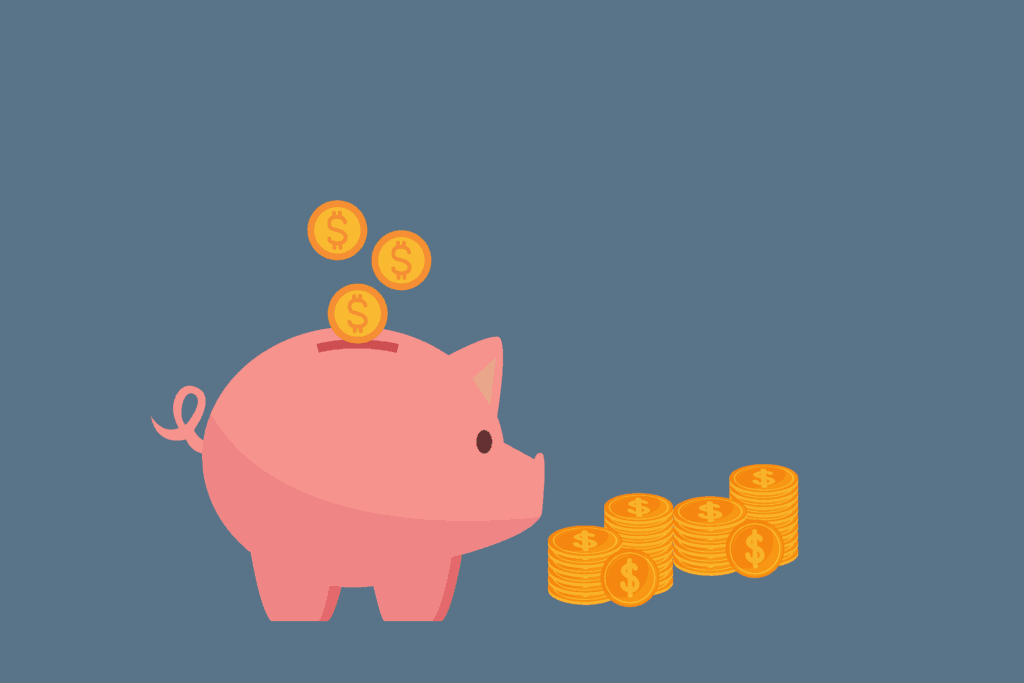
Step 3: Cover Your Fixed Essentials
Next, make sure your must-pay bills are handled:
| Expense | Notes |
| Housing | Rent or mortgage (or maybe you’re lucky and living at home) |
| Utilities | Electricity, water, gas, trash |
| Phone & Internet | Look for budget-friendly plans |
| Transportation | Gas, public transport, car insurance |
| Insurance | Health, renters, car |
Good rule of thumb: Try to keep your fixed expenses around 50% or less of your take-home pay. (If it’s higher for now, no stress. Just be aware.) And trust me, even though it’s not fun watching half your paycheck disappear to bills, you’re building serious life skills that’ll pay off later.
Step 4: Budget for Food and Necessities
Managing everyday basics is key when learning how to budget your first paycheck. It’s amazing how fast groceries, coffee runs, and Target trips or Amazon orders can add up.
| Item | Notes |
| Groceries | Home-cooked meals = serious savings |
| Eating Out | Give yourself a little room for fun, but set a limit |
| Household Basics | Toiletries, cleaning supplies, everyday needs |
If you’re still living at home, you might not be footing the full grocery bill yet, but it’s another reason to take advantage and stack up savings while you can!
Step 5: Set Discretionary (Fun) Spending Limits
After saving, covering your essentials, and feeding yourself, then you get to have some fun with your money too!
Discretionary spending includes:
- Clothes
- Hobbies
- Nights out
- Streaming services
- Travel
Solid starting point: Try to keep discretionary spending to about 20%–25% of your take-home pay.
That way you can still enjoy life now, without stressing out later.
Quick Example First Paycheck Breakdown
| Category | % of Net Pay | Notes |
| Savings (Emergency Fund + 401(k)) | 20%–30% | Higher if you have fewer bills |
| Fixed Expenses (Housing, Utilities, Insurance) | 40%–50% | Adjust depending on your setup |
| Food + Necessities | 10%–15% | Groceries and essentials |
| Fun Money (Discretionary) Spending | 15%–25% | Hobbies, fun, personal spending |
(If you have super low fixed expenses, bonus points: push even more into savings.)
Final Tips For How to Budget Your First Paycheck
- Automate your savings: if you can, it’s like setting money aside before you even get a chance to spend it.
- Start small: if you need to, even saving just $20 a paycheck matters.
- Adjust every few months: your budget can (and should) adjust as life changes.
Need help sticking to your first budget?
Starting with a budgeting app can make a huge difference. Apps like Rocket Money, Goodbudget, and EveryDollar, all offer simple tools to help you track your spending, save smarter, and stay on top of your goals, all without spending a dime .For most people just starting out, the free versions are more than enough to build good money habits and get a feel for what works best for you.
Personally, I suggest not syncing your bank accounts to the budgeting apps at first. Manually entering your expenses, even the tiny ones, helps you really see your spending habits and build awareness. But realistically, that might not work for everyone. If seeing every small detail feels overwhelming and you know syncing your accounts will help you stick to your budget better, then go for it.
The point isn’t to be perfect. It’s about getting a clearer picture of where your money is going and building a system that works for you. Especially when you’re just starting out and learning how to budget your first paycheck, finding what feels sustainable is what matters most.
✅ Pro tip: Pick one app and stick with it for at least 30 days to really see your habits!
Bottom Line
Your first paycheck is a huge deal, and honestly, just thinking about building good habits already puts you ahead of the game. You don’t need a perfect budget right away. You just need a system that gives you some breathing room, a little security, and yes, still lets you have some fun.
Take it one smart move at a time. You’ve got this! And, Mrs. Money Sidekick is here to help you through every stage.
On your side,
Mrs. Money Sidekick
P.S. Looking for more articles to help you set up your financial foundation and tackle all your important firsts? Check out our Starting Out posts for simple, real-world tips to make your next money moves a little easier!
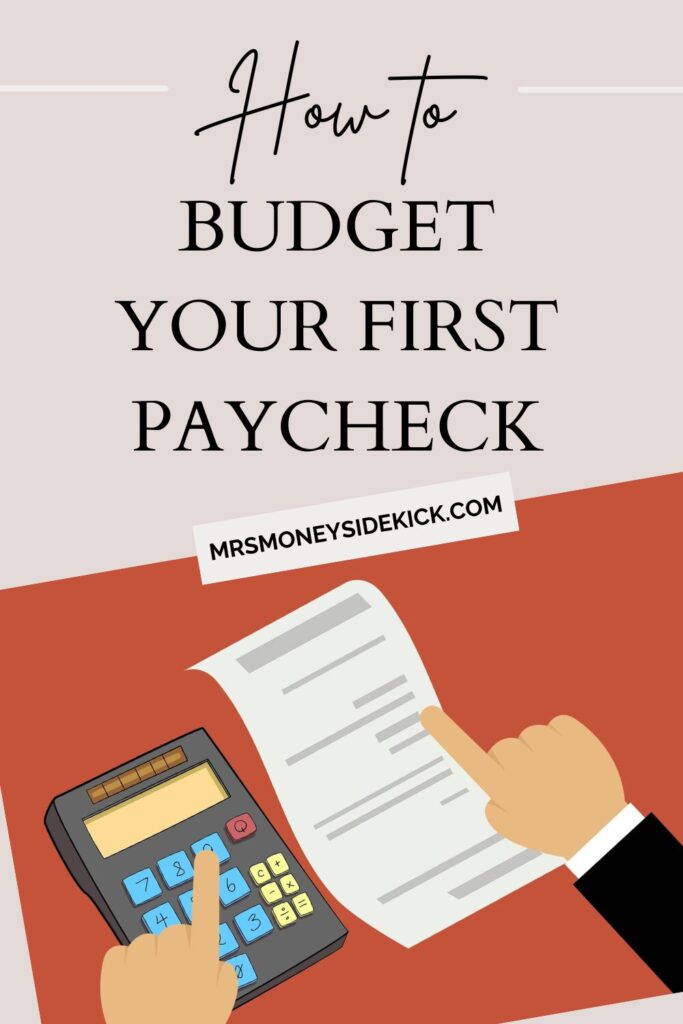

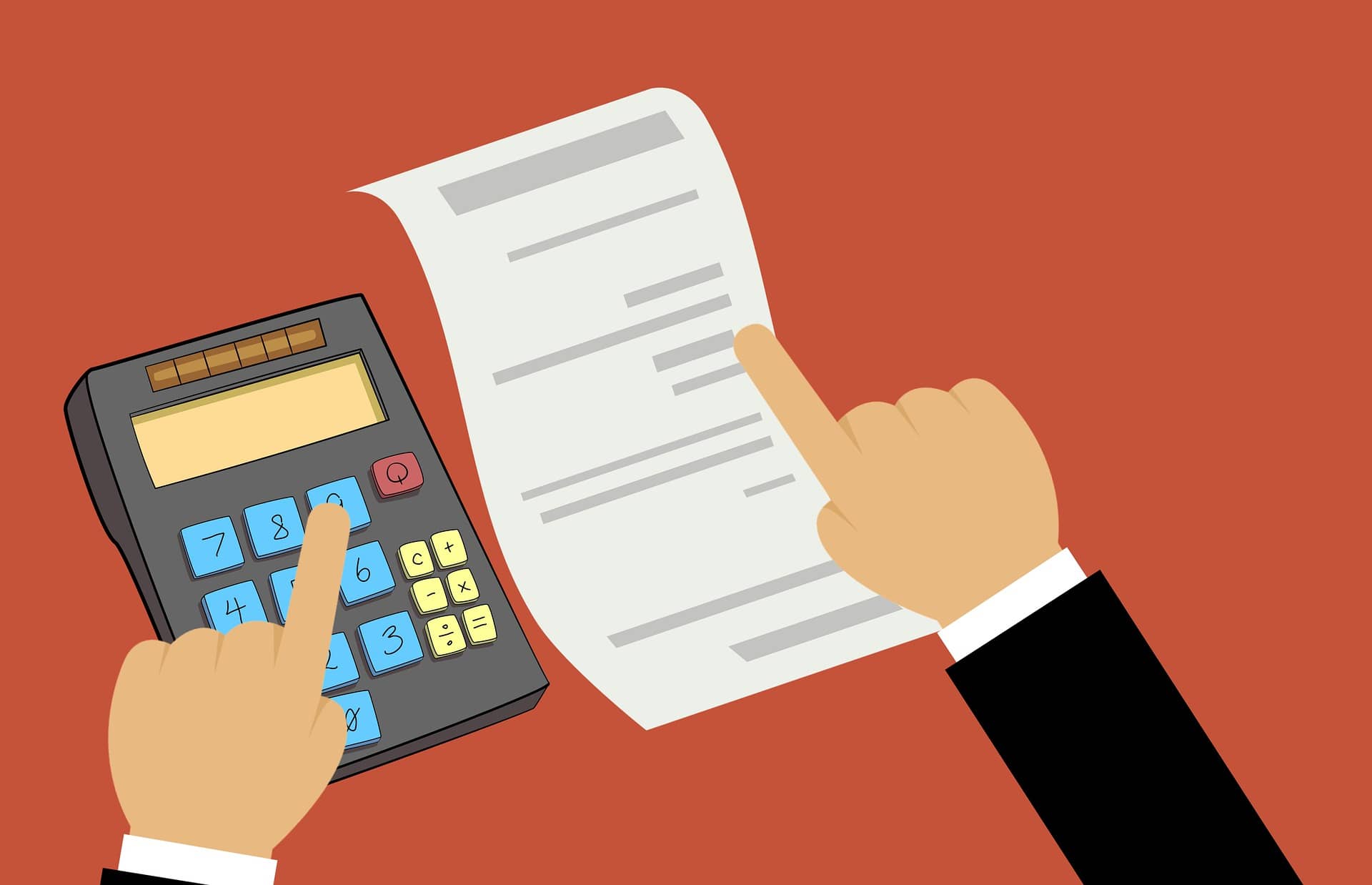


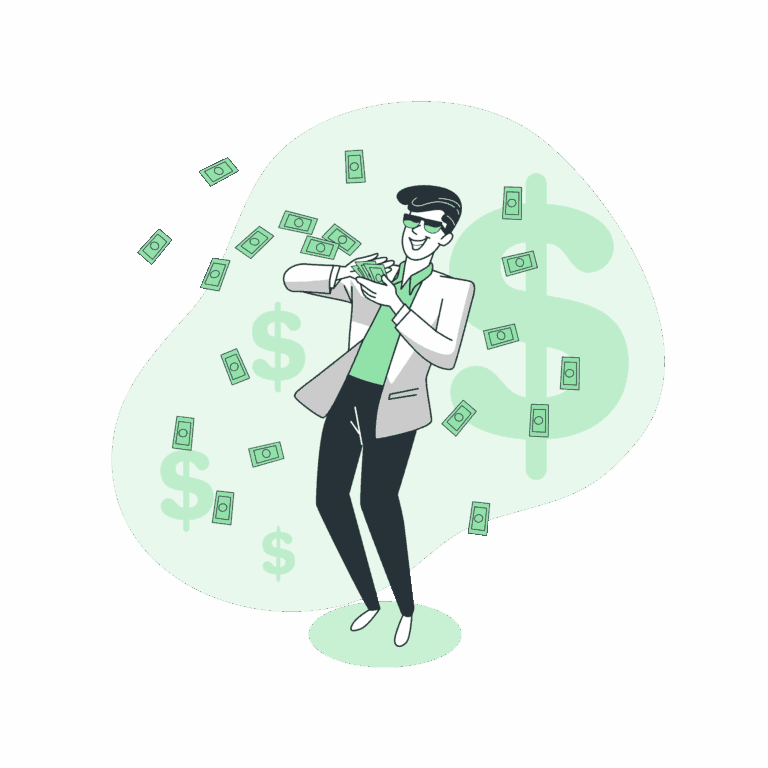
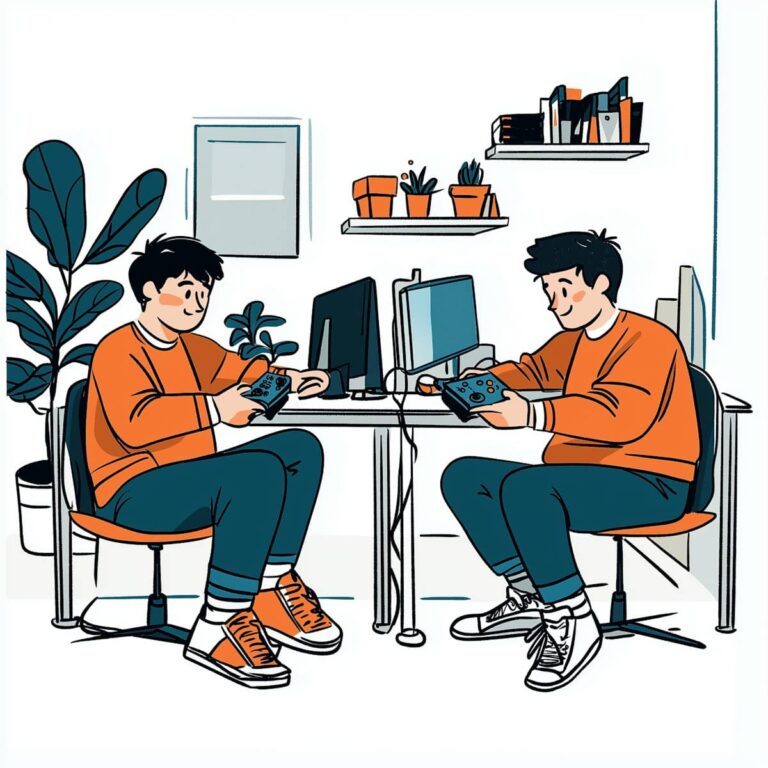
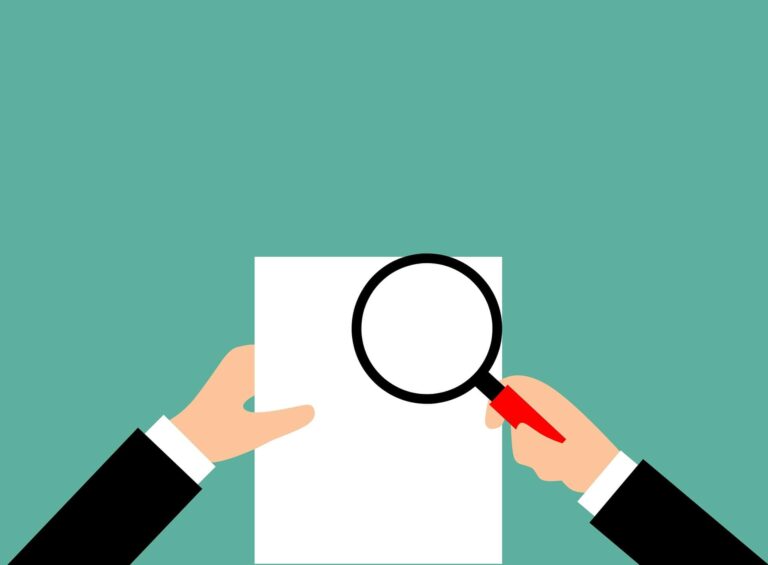

2 Comments